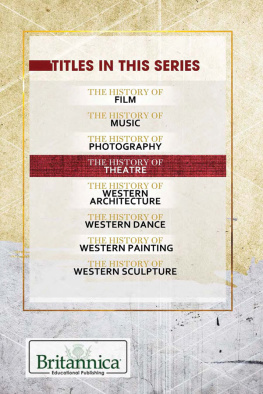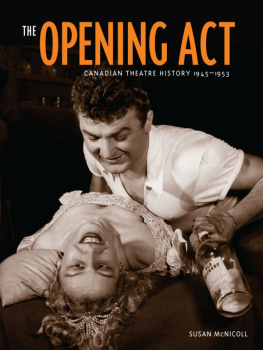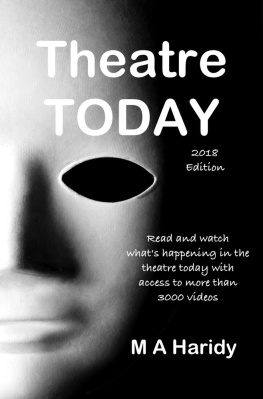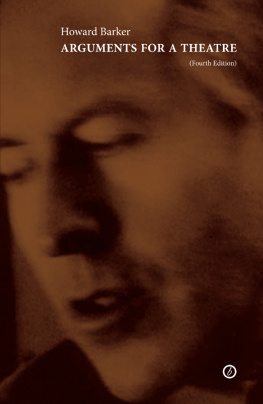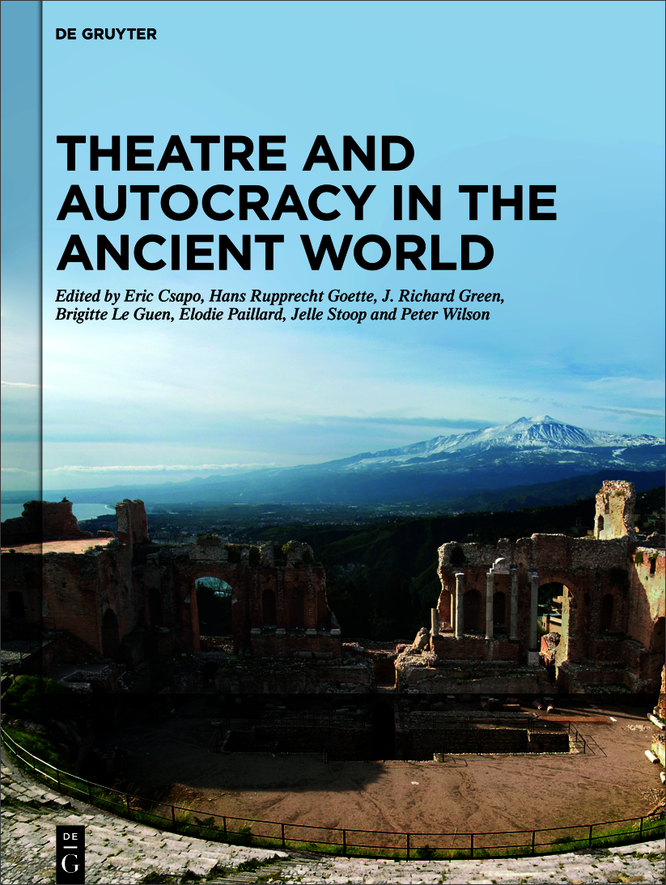ISBN 9783110795967
e-ISBN (PDF) 9783110980356
e-ISBN (EPUB) 9783110980387
Bibliographic information published by the Deutsche Nationalbibliothek
The Deutsche Nationalbibliothek lists this publication in the Deutsche Nationalbibliografie; detailed bibliographic data are available on the Internet at http://dnb.dnb.de.
2022 Walter de Gruyter GmbH, Berlin/Boston
List of Abbreviations
The abbreviations we use for Greek and Latin authors follow those found in The Oxford Classical Dictionary, fourth edition 2012 by S. Hornblower, A. Spawforth and E. Eidinow. Journal abbreviations are those used by the American Journal of Archaeology 104 (2000) 1024, supplemented where necessary by the abbreviations used in LAnne Philologique. Other abbreviations are listed below.
AV
Aneziri, Sophia 2003: Die Vereine der dionysischen Techniten im Kontext des hellenistischen Gesellschaft, 2003, Stuttgart.
CDLMichel, Anas 2020: Chypre lpreuve de la domination lagide. Testimonia pigraphiques sur la socit et les institutions chypriotes lpoque hellnistique, Athens.
CEGHansen, Peter A. 19831989: Carmina epigraphica graeca, 2 vols., Berlin and New York.
CIDRougemont, Georges, Bousquet, Jean, Blis, Annie and Lefvre, Franois 1977: Corpus des inscriptions de Delphes, Paris.
CIGBoeckh, August 18281877: Corpus inscriptionum graecarum, 4 vols., Berlin.
CIIPCorpus inscriptionum Iudaeae/Palaestinae, 2010-, Berlin.
CILCorpus inscriptionum latinarum, 1861-, Berlin.
Corinth VIII 1
Meritt, Benjamin D. 1931: Corinth VIII.1: The Greek Inscriptions, 18961926, Cambridge MA.
Corinth VIII 3
Kent, John H. 1966: Corinth VIII.3: The Inscriptions, 19261950, Princeton.
DK
Diels, Hermann and Kranz, Walther 19511952: Die Fragmente der Vorsokratiker, 3 vols., Berlin.
FD III
Bourguet, mile, Colin, Gaston, Daux, Georges, Sala, Antoine, Flacelire, Robert, Plassart, Andr, Pouilloux, Jean and Valmin, Natan 1929- : Fouilles de Delphes III: pigraphie, Paris.
FGEPage, Denys L. 1981: Further Greek Epigrams, Cambridge.
FGrHJacoby, Felix et al. 1923- : Die Fragmente der griechischen Historiker, Berlin and Leiden.
IAph2007Reynolds, Joyce, Rouech, Charlotte and Bodard, Gabriel 2007: Inscriptions of Aphrodisias, http://insaph.kcl.ac.uk/.
IDDurrbach, Flix, Roussel, Pierre, Launey, Marcel, Plassart, Andr and Coupry, Jacques 19261972: Inscriptions de Dlos, 7 vols., Paris.
I.DidymaRehm, Albert 1958: Didyma, II. Die Inschriften, Berlin.
I.EphesosWankel, Hermann, Brker, Christoph, Merkelbach, Reinhold, Engelmann, Helmut, Knibbe, Dieter, Noll, Johannes, Meri, Recep and ahin, Sencer 19791984: Die Inschriften von Ephesos (Inschriften griechischer Stdte aus Kleinasien 1117), 8 vols., Bonn.
IGInscriptiones Graecae, 1873-, Berlin.
IGR III
Cagnat, Ren, Toutain, Jules, Lafaye, Georges and Henry, Victor 19011927: Inscriptiones graecae ad res romanas pertinentes, 3 vols., Paris.
I.IasosBlmel, Wolfgang 1985: Die Inschriften von Iasos (Inschriften griechischer Stdte aus Kleinasien 28), 2 vols., Bonn.
ILSDessau, Hermann 18921916: Inscriptiones latinae selectae, 3 vols., Berlin.
I.MagnesiaKern, Otto 1900: Die Inschriften von Magnesia am Maeander, Berlin.
I.MylasaBlmel, Wolfgang 19871988: Die Inschriften von Mylasa (Inschriften griechischer Stdte aus Kleinasien 3435), 2 vols., Bonn.
I.NapoliMiranda, Elena 19901995: Iscrizioni greche dItalia, Napoli, 2 vols., Rome.
I.OlympiaDittenberger, Wilhelm and Purgold, Karl 1896: Die Inschriften von Olympia, Berlin.
I.OroposPetrakos, Vasilios C. 1997: , Athens.
I.PaphosCayla, Jean-Baptiste 2018: Les Inscriptions de Paphos. La cit chypriote sous la domination lagide et lpoque impriale, Lyon.
I.SalamisPouilloux, Jean, Roesch, Paul, Marcillet-Jaubert, Jean 1987: Salamine de Chypre XIII, Testimonia Salaminia 2. Corpus pigraphique, Lyon.
I.SicilyInscriptions of Sicily, Oxford. http://sicily.classics.ox.ac.uk/
I.SmyrnaPetzl, Georg 19821990: Die Inschriften von Smyrna (Inschriften griechischer Stdte aus Kleinasien 2324), 2 vols., Bonn.
I.ThespiaeRoesch, Paul 20072009: Les Inscriptions de Thespies, Lyon.
LBW
Le Bas, Philippe and Waddington, William H. 18511870: Voyage archologique en Grce et en Asie Mineure, 3 vols., Paris.
LIMCLexicon iconographicum mythologiae classicae, 19811999, Zurich and Munich.
OGISDittenberger, Wilhelm 19031905: Orientis graeci inscriptiones selectae. Supplementum sylloges inscriptionum graecarum, 2 vols., Leipzig.
PCGKassel, Rudolf and Austin, Colin 19832001: Poetae comici graeci, 8 vols., Berlin and New York.
PIR2
Groag, Edmund, Stein, Arthur, Petersen, Leiva, Wachtel, Klaus, Heil, Matthus, Eck, Werner, Heinrichs, Johannes 19332015 (2nd ed.): Prosopographia imperii romani saec. I. II. III., Berlin.
RCWelles, C. Bradford 1934: Royal Correspondence in the Hellenistic Period. A study in Greek Epigraphy, New Haven.
REWissowa, Georg et al. 18931980: Paulys Realencyclopdie der classischen Altertumswissenschaft, Stuttgart.
R-O
Rhodes, Peter J. and Osborne, Robin G. 2003: Greek Historical Inscriptions, 404323 BC, Oxford.
SEGSupplementum epigraphicum graecum, 1923-, Leiden.
Syll.3
Dittenberger, Wilhelm 19151924 (3rd ed.): Sylloge inscriptionum graecarum, 4 vols., Leipzig.
TAM II
Kalinka, Ernst 19201944: Tituli Asiae Minoris, II. Tituli Lyciae linguis graeca et latina conscripti, 3 fasc., Vienna.
TE
Le Guen, Brigitte 2001:Les Associations de Technites dionysiaques lpoque hellnistique,vol. 1, Corpus documentaire, Nancy.
Tit. Cam.Segre, Mario and Pugliese Carratelli, Giovanni 19491951: Tituli Camirenses, ASAtene 2729, N.S. 1113, 141318.
TrGFKannicht, Richard et al. 19712004: Tragicorum graecorum fragmenta, 5 vols., Gttingen.
Theatre and Autocracy: A Paradox for Theatre History
Eric Csapo
Elodie Paillard
Peter Wilson
Autocracy in this volume means one-man rule. It brings kings, tyrants, generalissimos, and emperors under a single rubric. The category is more modern than ancient, but not for that reason unhelpful to think with. We avoid the closest ancient term monarchia because its English derivative monarchy imports too many anachronistic connotations from modern history. Besides, monarchia appears in this comprehensive sense only in more abstract political discourse. In ordinary speech monarchia seems a far less coherent category than demokratia or oligarchia. It is not just technical but ethical differences that separate the varieties of monarchia,above all questions of constitutional legitimacy, and for this reason the category is too abstract for most normal political discourse, whereas kings, tyrants, generalissimos and emperors rarely mix in the same conceptual space. For theatre history, however, there is one thing that unites all varieties of autocrat: a keen enthusiasm for theatre and, often, a deft management of its resources for the consolidation of personal power. Often there is an inverse relation between an autocrats legitimacy and his support for theatre.


